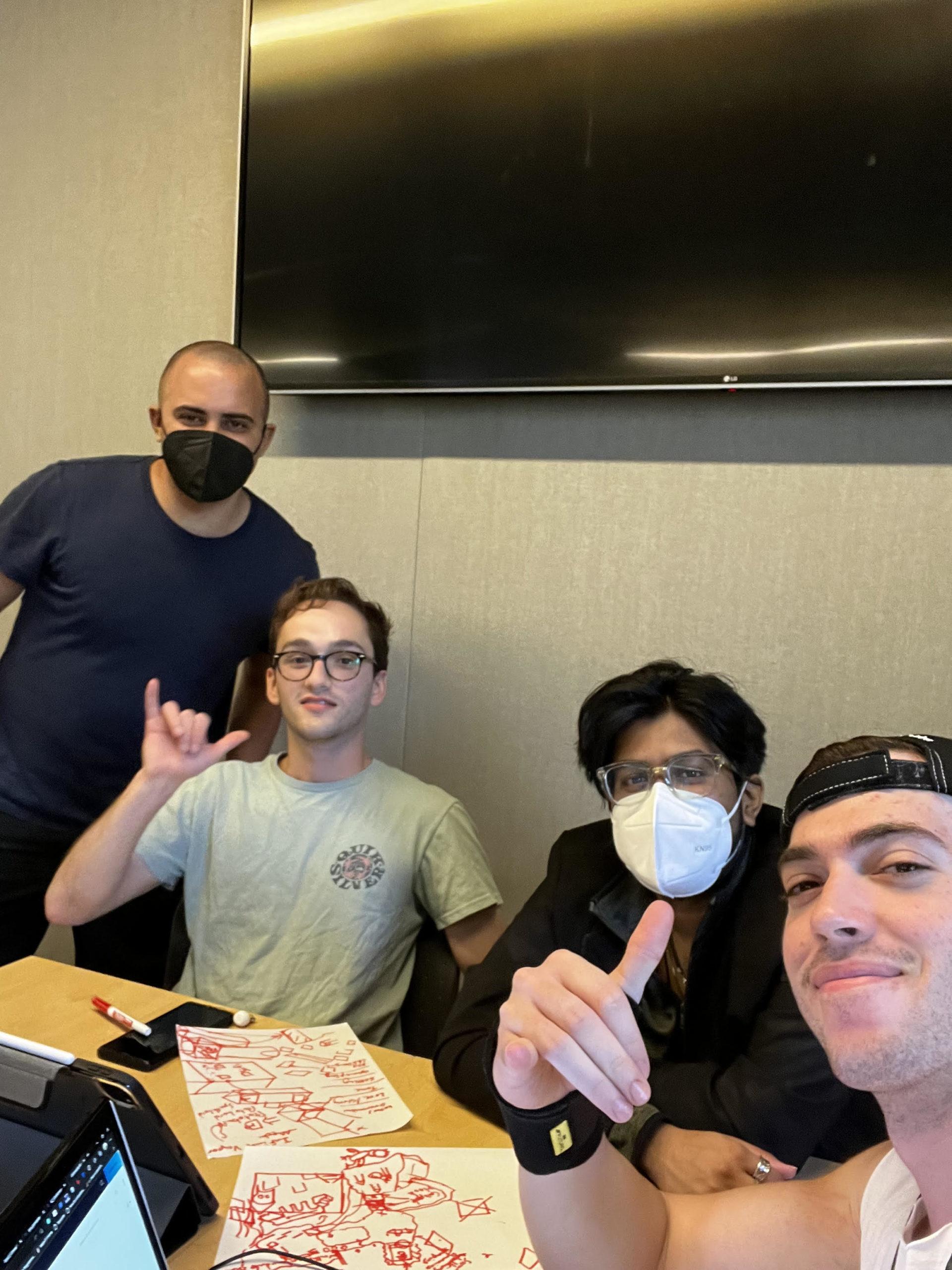Game design before this class I thought was all about mashing up cool mechanics and game modes, leaving the possible gameplay loops, types of fun, and types of players’ interactions as an afterthought. It was all about creating something that looked amazing and felt interesting while racking up thousands of hours of experience from playing videogames of different genres, themes and difficulties gave me some gut feeling intuition about the things that roughly felt right in a game of a particular genre, it was impossible to use the exact words to express those feelings or to formally analyze its underlying game elements and mechanics. I also have had little experience fully designing and playtesting a game, although I had worked on a few game prototypes, I had never actually gotten them to players’ hands.
While writing sketchnotes and mindmaps, it was incredibly satisfying seeing how the content we were going over, connected to my experiences playing certain games. I remember one of the first aha moments I experienced in the class was while sketching about the roles chance and skill play in determining the difficulty and accessibility of a game. It was fun to reflect on my experiences playing board games as a child and see how those moments that made me the happiest because I was able to beat grown-ups at something were carefully constructed, in other words: I realized that game designers were the real heroes of a huge part of my childhood because they managed to make me feel happy, big and special by taking skill out of the equation and using chance to level the playing field. Another revealing moment for the class was during my sketchnoting of interaction loops. This was around the time my team and I were planning out the types of gameplay loops our game would have and thus while reading about acquiring and mastering new gameplay loops I remember thinking “This is exactly what we’re doing!”. I felt like our previous experiences and intuition with games had led us to already understand some of the ins and outs of gameplay loops, thus during the reading, I was instead able to focus on paving gaps in my understanding and seeing how I could apply those to my newest project. This helped me and my team determine how to develop each section in between acquiring and testing out abilities in our tutorial level, how to space out checkpoints and how to increase the difficulty as the player progressed through the level. Lastly, I found the extra credit reading on cursed problems to be one of the most helpful lectures in the class, specifically, seeing the core issues with the premises and gameplay of popular games I’ve played and learned the specific ways in which these issues are were dealt with by the developers or compromised the end product felt like a pro-tip on how to think about the features of your game before even prototyping them. Identifying cursed problems before they make it through production seems like a skill that will come in handy as I continue developing games in the future.
The class was not all smooth sailing however, I also faced unexpected challenges along the way. Perhaps the most salient of these challenges was communicating adequately with my team for the first game. While during the first few sessions I felt like there existed mutual interest in engaging with the tasks needed for the production of our game, as the two weeks went on, I noticed more and more disengagement from some of my teammates. I did not recognize this pattern soon enough and thus did not prepare for the amount of work I had to crunch in during the last few days to deliver a refined final product, nor did I attempt to have meaningful conversations with my teammates to try and prevent this outcome. I limited myself to asking for help and updates in our group chat and becoming frustrated at the lack of responses, I did not press on to try and resolve this as I should have. My experience with my second team proved to be much different, however, yet I recognize that not every team I will work with in the future will match the resourcefulness and enthusiasm of my teammates for project 2, thus I believe that next time I happen to be in a team suffering from poor communication and engagement, I will be able to confront these issues head-on.
Lastly, I’d like to announce that this class is not the end of my game dev journey! Thanks to the support and encouragement from Christina, Jean, the rest of the TAs, and other students, I’ll continue working on a multiplayer UE5 port of our initial game over the summer with some of my teammates and I’m super excited to see where this project will lead and I’d love to share any significant progress with Christina and the rest of the class! Thank you so much for an amazing quarter!



